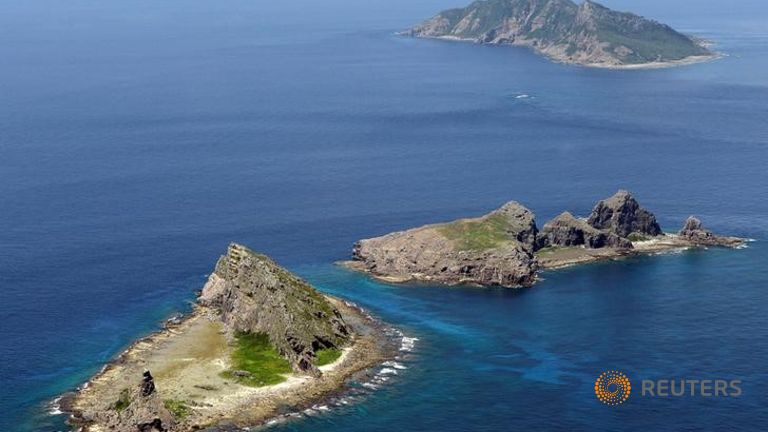-
Tips for becoming a good boxer - November 6, 2020
-
7 expert tips for making your hens night a memorable one - November 6, 2020
-
5 reasons to host your Christmas party on a cruise boat - November 6, 2020
-
What to do when you’re charged with a crime - November 6, 2020
-
Should you get one or multiple dogs? Here’s all you need to know - November 3, 2020
-
A Guide: How to Build Your Very Own Magic Mirror - February 14, 2019
-
Our Top Inspirational Baseball Stars - November 24, 2018
-
Five Tech Tools That Will Help You Turn Your Blog into a Business - November 24, 2018
-
How to Indulge on Vacation without Expanding Your Waist - November 9, 2018
-
5 Strategies for Businesses to Appeal to Today’s Increasingly Mobile-Crazed Customers - November 9, 2018
Japan warns China of worsening ties over East China Sea dispute
Japan’s foreign minister summoned China’s ambassador Tuesday and lodged a protest over the increased number of Chinese vessels in waters near disputed islands in the East China Sea.
Advertisement
A statement from Japan’s foreign ministry also said Kishida had told the envoy that Japan could not accept China’s conduct of “unilaterally” increasing tensions such as sending its government ships into what Japan considers its territorial waters around disputed East China Sea islets.
The move by Fumio Kishida comes as the number of Chinese coast guard ships around the islands has almost quadrupled over the past few days to as many as 13, a record number since China started sending ships to the region in September 2012 after Japan nationalized the islands’ ownership.
Dozens of Chinese vessels sailed near the islands on the weekend raising alarm in Japan.
Since the ruling, China has repeatedly reasserted its historical claim to the virtually the entire strategically vital water body, its islands, reefs, plentiful fish stocks and other resources. Some of the vessels also entered Japanese waters.
Japanese Foreign Minister Fumio Kishida (L) meets Chinese ambassador to Japan Cheng Yonghua in Tokyo, Japan, in this photo taken by Kyodo August 9, 2016.
The tribunal’s ruling was a response to a landmark case brought by the Philippines, which called it an “overwhelming victory”. Japan called on China to adhere to it, saying it was binding but Beijing warned Japan not to interfere.
Pictures taken in late July show the hangars constructed on Fiery Cross, Subi and Mischief Reefs in the Spratly islands, have room for any fighter jet in the Chinese air force, the Center for Strategic and International Studies (CSIS).
A US navy commander said it had not been confirmed that the hangers were for military use, but uncertainty about them could add to tension.
A U.S. Navy guided-missile destroyer arrived in the northern Chinese port of Qingdao on Monday in the first visit by an American warship to the country since Beijing responded angrily to an arbitration panel’s ruling that its expansive South China Sea maritime claims had no basis in law.
If those planes were deployed, they would greatly complicate China’s disputes with the Philippines and other nations, and add a level of military risk to the United States’ “freedom of navigation” patrols through the area.
Beijing’s territorial claims to the Spratly Islands, which are believed to be rich in oil and gas reserves, run counter to those of the Philippines, Taiwan, Malaysia, Brunei and Vietnam. China has repeatedly denied doing so, saying the facilities were for civilian and self-defense uses, and in turn criticized USA patrols and exercises for ramping up tensions in the region.
Advertisement
“The idea is to use the South China Sea as a place to save lives, but not to kill people or to destroy lives”, he told reporters.





























